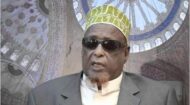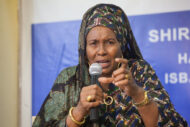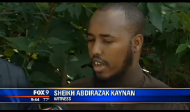

President Barack Obama delivers a policy address on events in the Middle East at the State Department in Washington.
WASHINGTON: US President Barack Obama, in a major Mideast policy speech Thursday, said the political changes in the Middle East and North Africa mark a “new chapter” in American diplomacy, and that the future of the US is bound to the Middle East and North Africa by the forces of economics, security, history and fate. He also called on the Israelis to withdraw to pre-1967 borders.
He made the comments at the State Department in the speech meant as his first comprehensive response to revolts sweeping the Arab world. It was aimed at audiences in the US and the Middle East and North Africa, where the State Department provided simultaneous translation in Arabic, Farsi and Hebrew.
Obama made outreach to the Islamic world a signature of his presidency when he delivered his first presidential speech in Cairo in 2009 to Muslims around the world. Since then, some observers believe he failed to deliver on the hope he created following his discourse. Thursday’s speech was meant to assuage that disappointment.
The president said that for six months the world has watched the “extraordinary change” taking place in the Middle East and North Africa, adding that two leaders have already been replaced, and “more may follow” as people rise up to demand their basic rights.
After years of war against Al-Qaeda and its affiliates, the United States dealt extremists a “huge blow” by killing Osama Bin Laden in a raid in Pakistan, Obama said, adding that the Al-Qaeda leader was not a martyr, but a “mass murderer.”
He then pledged continued support for Mideast reforms and said Syrian President Bashar Assad must lead transition in his country or “get out of the way.”
The speech came a day after the United States imposed sanctions on Syria’s president for human rights abuses during a deadly government crackdown on the opposition.
The US will continue to oppose the use of violence and oppression against protesters, the president said, adding that he embraced the call for change and compared it to signature moments of American history.
Obama also listed a number of key interests that the US has in the Middle East: “For decades, the United States has pursued a set of core interests in the region: countering terrorism and stopping the spread of nuclear weapons; securing the free flow of commerce, and safe-guarding the security of the region; standing up for Israel’s security and pursuing Arab-Israeli peace.”
He did not mention oil.
On the Israeli-Palestinian conflict, Obama said the US endorses the Palestinians’ demand for their future state to be based on the borders that existed before the 1967 Middle East war.
“The borders of Israel and Palestine should be based on the 1967 lines with mutually agreed swaps, so that secure and recognized borders are established for both states. The Palestinian people must have the right to govern themselves and reach their potential in a sovereign and contiguous state.”
He called on the leaders on both sides to seize an opportunity for peace.
Obama met King Abdallah of Jordan at the White House Wednesday, and is scheduled to meet with Israeli Prime Minister Benjamin Netanyahu Friday.
Obama’s comments on the Israeli-Palestinian conflict, not surprisingly, made headlines in the US press. The Drudge Report led with the headline, “Obama Sides With Palestinians,” while CNN quoted Middle East analyst Aaron David Miller as saying Obama’s border comments, coming a day before his meeting in Washington with Netanyahu, “will be viewed in negative terms.”
Why? The AP explains that Netanyahu is “vehemently opposed to referring to the 1967 borders,” and until today “the US position had been that the Palestinian goal of a state based on the 1967 borders, with agreed land swaps, should be reconciled with Israel’s desire for a secure Jewish state through negotiations.”
Americans for Peach Now President Debra DeLee said: “Today, President Obama signaled to the world that he is still serious about Israeli-Palestinian peace and that he is a true friend of Israel. We welcome his clear statement that the US position is that a permanent status peace agreement will be based on the 1967 lines…”
Other analysts criticized what they called a major omission in the president’s speech: He did not mention US ally Saudi Arabia.
Mideast analyst Mona Eltaway said the speech wasn’t all that surprising. It “skimmed the surface of a lot of important things but didn’t tell people in the region anything they didn’t know,” she argued.

 All Posts
All Posts









